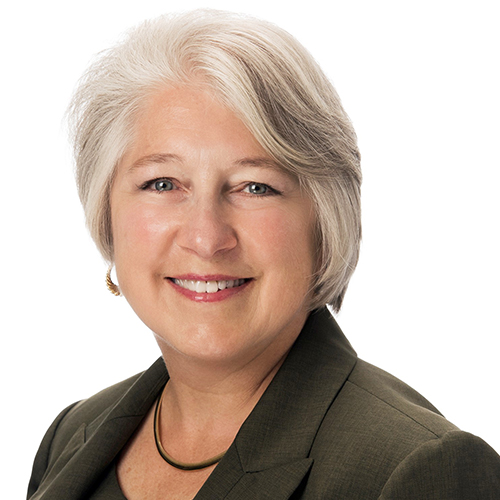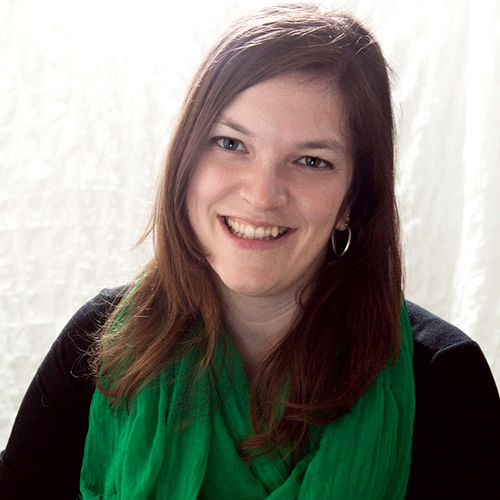 Lactation & Breastfeeding Online Course(s) & Continuing Education
Lactation & Breastfeeding Online Course(s) & Continuing Education
Access the latest clinical skills and research for Lactation & Breastfeeding for professional training. These Lactation & Breastfeeding online courses provide practice-changing skills and valuable perspectives from leading global experts. This Lactation & Breastfeeding education has been accredited for a variety of CEUs / CERPs and can be accessed on-demand, at your own pace.
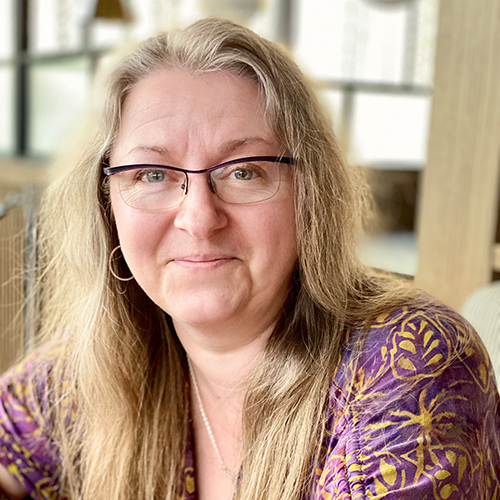
Care Plan Development for Weight Concerns in the Breastfed Infant: A Family Centred Approach

Shel works part time for the NHS in northwest England, and has four adolescents.
In addition to this, she runs a small private IBCLC practice specialising in the unsettled baby, those with faltering weight and those who are formula fed, and also holds a variety of consultant and trustee roles in various national and international organisations for advocacy and education around infant feeding; these include being Clinical Director for the breastfeeding support app AnyaHealth, being co-chair of Nursing Matters, an advocacy organisation for the breastfed infant, and being vice-chair of the UK Association for Milk Banking.
Shel has been on the development committee for 3 NICE guidelines including one on Faltering Growth, has co-authored 3 Cochrane systematic reviews, and written a book “Why Infant Formula Feeding Matters” (2022). In 2021 Shel began work towards a PhD in further understanding how best to support families with unsettled babies in universal services, which she conducts part time alongside her other commitments.
She teaches in person and online, both in her NHS role and in the consultant roles, and thoroughly enjoys sharing the knowledge she has acquired to improve the experience of families everywhere.
Understanding how to develop effective and supportive evidence-based care plans for babies whose weight and/or growth is faltering, is absolutely key to the toolkit of those who are working with breastfeeding babies. Find out more in this presentation.

View Details / Enroll
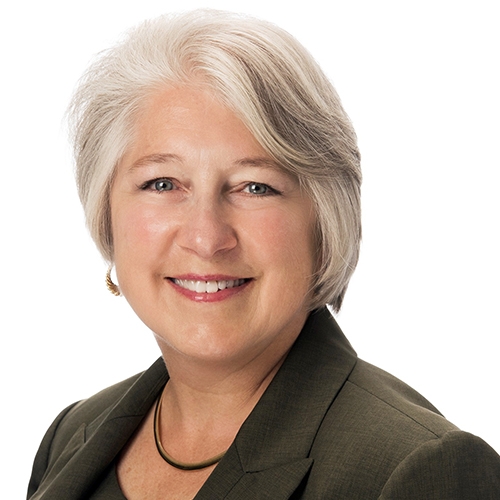
Caring for Three Generations at a Time: Clinical Perinatal Care of Individuals With Obesity

Cecilia Jevitt is the Midwifery Director and a tenured associate professor at the University of British Columbia, Faculty of Medicine. From 2013 to 2018, she directed the Yale School of Nursing’s Midwifery and Women’s Health Nurse Practitioner master’s degree programs. She has done capacity-building teaching and curriculum consultations in Switzerland, Laos, China and Ghana.
Jevitt studied midwifery at Emory University. Her 1993 doctorate in applied medical anthropology is from the University of South Florida. She established an academic division of midwifery with the University of South Florida College of Medicine while jointly appointed to the Colleges of Nursing and Public Health.
She is an elected Fellow of the American College of Nurse-Midwives and is the At Large Member of the FACNM Board. Jevitt was a Florida Nurses Association Great 100 Nurse in 2009, the 2010 Reviewer of the Year for the Journal of Midwifery & Women’s Health, the University of South Florida Department of Anthropology’s Distinguished Alumni in 2012, and a 2014 Connecticut Nightingale Excellence in Nursing Award winner.
Jevitt’s scholarship focuses on perinatal weight gain optimization and integrating obesity prevention and management into women’s health especially the perinatal and lactation periods.
Obesity affects more than 35% of women ages 20-39 in the United States. This presentation will summarize recent research that reconceptualizes obesity as adipose disease associated with smoking; socio-economic disparities in employment, education, health care access, food quality and availability; and environmental toxins, ultimately altering microbiomes and epigenetics. Obesity is an adaptation to an unhealthy environment more than poor individual eating choices. The female fetus forms her lifetime complement of ova during pregnancy; therefore, the effects of obesity may affect three generations in one pregnancy.
Individual prenatal care of women with obesity includes early testing for diabetes, counseling on epigenetic diets, advice supporting weight gain within national guidelines, and vigilance for signs of hypertensive disorders of pregnancy. Intrapartum care includes mechanical cervical ripening measures, patience with prolonged labor and uterotonic medication readiness in the event of postpartum hemorrhage. Postpartum care includes thrombus risk amelioration through early ambulation, use of compression stockings and anticoagulation. Delays in lactogenesis II can be offset by measures to support early breastfeeding. Sociopolitical actions for midwives at national, state and community levels to reduce population disparities in racism, education, employment; reduce pollution from obesogenic chemicals and improvement of food quality and distribution policies will be reviewed.

View Details / Enroll


Mary Ryngaert is a Pediatric Nurse Practitioner since 1987 and an International Board-Certified Lactation Consultant since 2000. She received her MSN in the Primary Care of Children at Catholic University in Washington, DC. In her clinic at the University of Florida, she sees families for breastfeeding issues for the duration of the breastfeeding journey and provides education for pediatric residents. She is active in the local breastfeeding coalition and serves as a consultant/coordinator for the hospital Baby Friendly program. She has a special interest in supporting the development of peer counselors, especially women of color, to provide breastfeeding support within the community. She served as the Chair for the National Association of Pediatric Nurse Practitioners (NAPNAP) Breastfeeding Special Interest Group for six years and is a delegate to the US Breastfeeding Committee for NAPNAP . She was a co-author for the 2018 update to the NAPNAP Position Statement on Breastfeeding.

View Details / Enroll
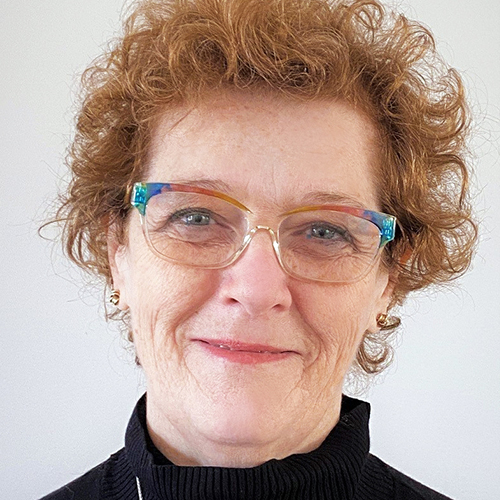

Kathy O'Grady Venter is a registered nurse and retired midwife. She has been an International Board Certified Lactation Consultant (IBCLC) since 1990.
Kathy is a WHO|UNICEF trained BFHI Assessor and Trainer (1991) through IBFAN Africa and currently she is a CoChair of the BFI assessment committee of the Breastfeeding Committee for Canada (BCC), BFI Lead Assessor – BCC Baby Friendly Initiative (BFI) Assessment Committee, Lactation consultant Sunnybrook Health Sciences Centre in Toronto and Breastfeeding educator and BFI consultant.
In the past, Kathy has been Chair for the BCC, Chair of the BFI assessment/education committee of the Baby Friendly Initiative Ontario and the recipient of the Canadian Lactation Consult Association Award for Clinical Excellence.
Approaching clinical care in an ethical manner is a core component of providing care as an IBCLC. Sometimes however, it can be hard to figure out what the ethical response is during everyday practice. Through the lens of clinical scenarios, this presentation encourages delegates to think critically about ethical practice and raises awareness of potential inconsistencies in care and subtle ethical issues which are sometimes overlooked. Learn more about your ethical responsibilities and ways to manage ethical dilemmas in clinical practice.

Chasing the Butterfly: Understanding How the Thyroid Gland Impacts Breastfeeding

Alex has been a lactation consultant in the Washington, DC area since 2010. In addition to running her private practice, Bethesda-Chevy Chase Lactation Consultants, Alex cares for breastfeeding moms and babies at Hirsch Pediatrics in Rockville, MD. After earning her master's in English Literature and teaching for several years, Alex met two extraordinary people that inspired her to enter the field of lactation: her daughters. Alex has worked at Inova Fairfax Hospital and Sibley Memorial Hospital as an in-patient lactation consultant. In 2015, she graduated summa cum laude from the University of Maryland Baltimore School of Nursing with a Bachelors of Science in Nursing. Alex is committed to increasing awareness for impaired mammary organ development (IMOD) and impaired mammary organ function (IMOF).
Often overlooked and as elusive as the butterfly it resembles, the thyroid gland may lurk behind a number of breastfeeding difficulties, including low-supply, over-supply, and overt lactation failure. Recent research has revealed that thyroid disorders during pregnancy and postpartum are more common than previously thought. A substantial amount of our current professional discourse centers around tongue-tie, which occurs in anywhere from 4.2%-10.7% of babies, while thyroid disorders in lactating women may in fact be more prevalent than tongue tie, affecting anywhere from 6.7%-13.3% of women in the postpartum period. Even more alarming is that as many 50-80% of these cases may be missed by a woman’s healthcare provider. During this presentation, you will gain a basic understanding of how the thyroid gland functions and the various ways in which a dysfunctional thyroid can adversely affect lactation. You will also learn which signs and symptoms warrant a referral to a primary health care provider. We will review the latest evidence-based thyroid hormone reference values appropriate for a woman during pregnancy and postpartum so that, if your patient does undergo testing, you will feel confident discussing those results with her. Finally, we will discuss some herbal and dietary recommendations for improving thyroid function.

View Details / Enroll

View Details / Enroll

Check your “Blind” Spot, The Crisis We Are Not Talking About: Transforming Color Blindness to Racial Equity

Felisha Floyd, BS, CLC, IBCLC is currently Lactation Coordinator for Hospital Corporations of America system in Florida. She also offers infant feeding support, mentorship, and education to her local community via her private practice, Beyond Breastfeeding. Felisha is the founder of Our Brown Baby, a community based breastfeeding support group, which serves to provide specialized culturally sensitive breastfeeding support to families of color. In addition to these roles, Felisha is one of the founding mothers and current President of the non-profit The National Association of Professional and Peer Lactation Supporters of Color, affectionately known as "NAPPLSC". She is also a Center for Social Inclusion First Food Equity Cohort member. Previously, she worked as a Women, Infants, and Children (WIC) Breastfeeding Peer Counselor and Breastfeeding Coordinator.
Fueled by her professional and personal passions to ensure that all mothers have access to quality breastfeeding support and resources, she has fervently pledged to reduce breastfeeding disparities in the African American community. To this end, she continually makes efforts to help increase breastfeeding rates in the African American community by unapologetically fighting that which contributes to racial health disparities. Fearlessly obsessive, she is affectionately known as the social media guru "Blactavist!" (Black Lactation Activist). This online community consists of approximately 38,000 supporters on Twitter, Facebook and Instagram, and is dedicated to empowering African American families to breastfeed.
Felisha is a national leader, an experienced trainer and speaker, and a consultant. Through her aforementioned roles, she has provided training programs across the US on topics of clinical breastfeeding, racial equity, first food justice, mentorship, power of collective impact and more. Her previous experience includes national trainings for WIC and professional consultancies for WIC Loving Support Program and the Boston Medical College's Communities and Hospitals Advancing Maternity Practices grant funded program.
Dedicated to improving the level and diversity of lactation support nationally, Felisha trains and mentors aspiring lactation consultants through her private practice. She is the co-author of Clinical Internships for the Next Generation of IBCLCs, an article featured in The Journal of Human Lactation. Felisha also serves with high honor as a member of the Global Board of Directors for Mom2Mom Global, the Advocacy Chair for the State of Florida Breastfeeding Coalition, Secretary of the Board of Directors for the United States Breastfeeding Committee (USBC). She has been honored as a recipient of the Inaugural Concrete Rose Award by Reaching Our Sisters Everywhere and recognized by USBC with the Legacy Award.
We deepen understanding of false conceptual assumptions that define racial equity by critiquing standards of organizational operations. Strengthening awareness to lactation providers by defining and determining key terms which identifies structural racism and reduces superficial outcomes. By alternating racial equity from a “hot topic” to systemic revolution to deconstruct barriers by challenging these assumptions by concepts. Identifying standards that ensure transformation and shift gears from idealist views on racial equity to strategies to promote impactful solutions. Reevaluating promises to actions which Increases understanding of racial equity through policies, practices and procedures. Empowering audience to determine their baseline and understanding of racial equity to build compacity to their ability to morph from ally to accomplice. Giving guidelines, theories and concepts to build an organizational framework to develop and implement plans to incorporate into practices. Despite a growing interest to being sympathetic to racial equity efforts, this learning environment will improve understanding of systems of racism which impact health outcomes. Giving the learners the ability to examining concrete approaches to advancing racial equity.

View Details / Enroll

View Details / Enroll

Clinical Assessment and Management of Low Milk Production

Barbara D. Robertson, IBCLC, has been involved in education for over 34 years. She received a Bachelor’s degree in Elementary Education in 1988 and her Master’s in Education in 1995. Barbara left teaching elementary students in 1995 to raise her two children. Barbara is now the Director of The Breastfeeding Center of Ann Arbor and of the brand new business LactaLearning.
The Breastfeeding Center of Ann Arbor will still continue to serve breast/chestfeeding families and now LactaLearning will be dedicated to all of Barbara’s professional lactation trainings. Barbara has developed two 95 hour professional lactation training, a group training and a completely self study training with Nancy Mohrbacher. Barbara’s idea of creating professional book groups has exploded with her hosting Making More Milk with Lisa Marasco, Supporting Sucking Skills with Cathy Watson Genna, Breastfeeding Answers, 2nd Edition with Nancy Mohrbacher, and new for the fall, Safe Infant Sleep with Dr. James McKenna. Barbara will be hosting a one day online conference in the fall with Lisa Marasco and Cathy Watson Genna using all of her tech savvy skills to make this a one of a kind experience. Barbara is also a speaker for hire on a wide variety of topics including Motivational Interviewing. Barbara volunteered for the United States Lactation Consultation Association as the Director of Professional Development for 4.5 years.
She just retired as Associate Editor for Clinical Lactation, a journal she helped create for USLCA. Barbara has free podcasts, a blog, and Youtube videos which can all be found on her websites lactalearning.com and bfcaa.com. She has written many articles as well. She loves working with parents and babies, helping them with breast/chestfeeding problems in whatever way she can.
Topic: Breastfeeding: Baby’s First Milestone - [View Abstract]
Topic: Clinical Assessment and Management of Low Milk Production - [View Abstract]
Topic: Deconstructing Online Messaging: Ethical Considerations - [View Abstract]
Topic: Milk Sharing and Milk Banking: Building Knowledge for Better Outcomes - [View Abstract]
Topic: The Baby's Not Gaining Weight! Now What? - [View Abstract]
Topic: The Great Nipple Shield Debate - [View Abstract]
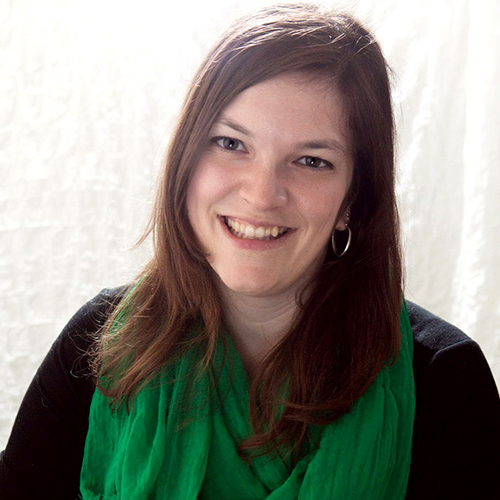

Julie Matheney knew when she was ten years old that she wanted to feed babies for a living. She earned her Masters in speech-language pathology and has worked with feeding and swallowing disorders for over a decade. While most people assume speech therapists teach children who stutter or work on ""r's and s's"", the bulk of her job is feeding and swallowing as part of a hospital based, rehabilitation team. The same things you speak with, you eat with! Over the past decade working in the NICU, she discovered her passion for working with breastfeeding families and became an IBCLC in 2018.
She transitioned out of the hospital in July 2021 and currently works full time in private practice as a lactation consultant in Los Angeles. She enjoys helping the whole family in the feeding process to meet their goals.
Her loving husband is always supportive of her in her vocational passions and was instrumental in launching her private practice. She has two young daughters, both of whom were exclusively breastfed until two years old.
Topic: Overcoming Challenges to Feeding: Supporting Parents with Physical, Mental or Socioemotional Differences - Part 1 - [View Abstract]
Topic: Overcoming Challenges to Feeding: Supporting Parents with Physical, Mental or Socioemotional Differences - Part 2 - [View Abstract]
The human body is intricate and fascinating. Anatomy (what it looks like) determines physiology (what it does). Sometimes anatomy, because of its variable nature, can cause changes in anticipated physiology which results in clinical symptoms. This presentation focuses on how symptoms give us clues about anatomy and physiology of the breast through the lens of several clinical case studies.


Melissa Cole is a board-certified lactation consultant, neonatal oral-motor assessment professional and clinical herbalist in private practice. Melissa is passionate about providing comprehensive, holistic lactation support and improving the level of clinical lactation skills for health professional. She enjoys teaching, researching and writing about wellness and lactation-related topics. Her bachelor’s degree is in maternal/child health and lactation and her master’s degree is in therapeutic herbalism. Before pursuing her current path, Melissa’s background was in education and cultural arts, which has served her well in her work as a lactation consultant and healthcare educator. She loves living, working and playing in the beautiful Pacific Northwest with her 3 children.
Topic: Beyond Fenugreek: An Individualized Approach to Dietary and Herbal Galactagogues - [View Abstract]
Topic: Beyond the Basics of Latch: Support Strategies for Helping Babies when the Basics Aren’t Enough - [View Abstract]
Topic: Common Infant Digestive Health Concerns and Useful Support Strategies - [View Abstract]
Topic: Connection and Care: Virtual Support for Tongue-Tied Infants - [View Abstract]
Topic: Feeding is Movement: Activities for Supporting Optimal Infant Oral Function - [View Abstract]
Topic: Infant Gut Health: Common Concerns and Useful Support Strategies - [View Abstract]
Topic: Infant Oral Assessment: Exploring Anatomy and Function Beyond the Frenulum - [View Abstract]
Topic: Low Milk Production Detective Work: Assessment and Care Plan Considerations - [View Abstract]
Topic: New Thoughts on Infant Pre and Post-Frenotomy Care - [View Abstract]
Topic: Placenta Medicine as a Galactogogue: Tradition or Trend? - [View Abstract]
Topic: Thinking Critically About the Use of Clinical Lactation Tools - [View Abstract]
Topic: Will It Hurt? Frenotomy Aftercare Strategies to Optimize Healing Outcomes for the Newborn - [View Abstract]
This session will focus on common concerns regarding infant digestive health and useful support strategies that care providers can incorporate into their work with families. We will discuss what's normal and what's not in regard to stooling, spit up/reflux, colic/fussiness, food sensitivities, and more. Many parents are coping with babies that are uncomfortable and unhappy due to digestive health concerns. Dealing with a fussy, uncomfortable baby is emotionally and physically draining. Having a basic understanding of infant gut health and care strategies can be useful tools for any type of practitioner working with infants.

View Details / Enroll
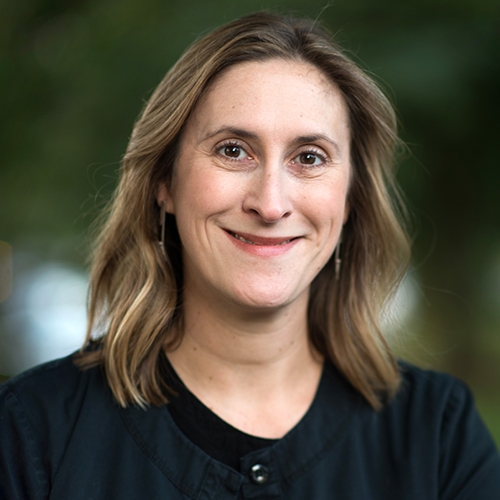
View Details / Enroll


Nancy Mohrbacher was born and raised in the Chicago area, where she lives today. She is a board-certified lactation consultant who has been helping nursing mothers since 1982. Her breastfeeding books for parents and professionals include Breastfeeding Answers Made Simple and its Pocket Guide; Breastfeeding Made Simple(with Kathleen Kendall-Tackett); Working and Breastfeeding Made Simple; and Breastfeeding Solutions and its companion app for Android and iPhone.
Nancy currently contracts with hospitals to improve breastfeeding practices, writes for many publications, and speaks at events around the world. Nancy was in the first group of 16 to be honored for her lifetime contributions to breastfeeding with the designation FILCA, Fellow of the International Lactation Consultant Association.
Topic: Applying Bioethics to Milk Banking and Milk Sharing - [View Abstract]
Topic: Concerns About Low Milk Production - [View Abstract]
Topic: Transitioning the Preterm Infant to the Breast - [View Abstract]
Topic: Using Gravity-Assisted Positions to Prevent Early Breastfeeding Problems - [View Abstract]
Topic: What Mothers Need to Exclusively Breastfeed - [View Abstract]
Topic: What's New In Lactation - [View Abstract]
This talk provides an analysis of the challenges associated with assessing milk adequacy during the hospital stay, the need for supplements, and when supplements are needed, recommended feeding volumes and methods. It also includes strategies for helping employed mothers use the Magic Number concept to keep milk supply steady long term and planning tips for the next baby when a mother had previous milk-production issues.





